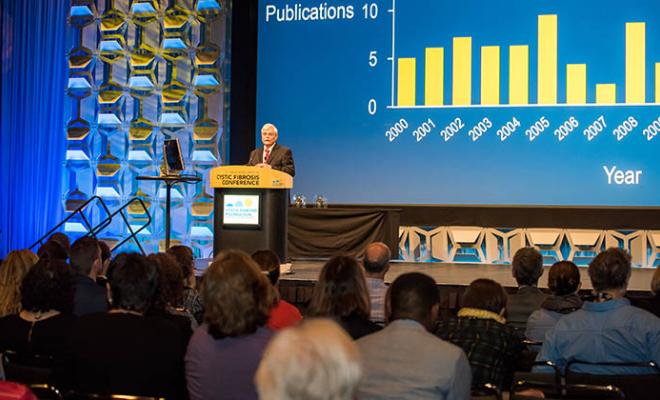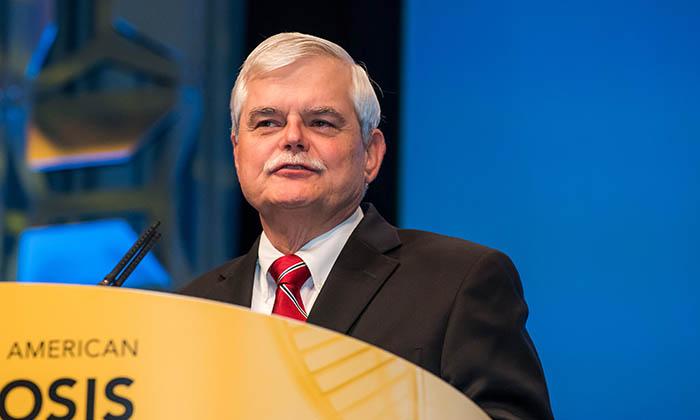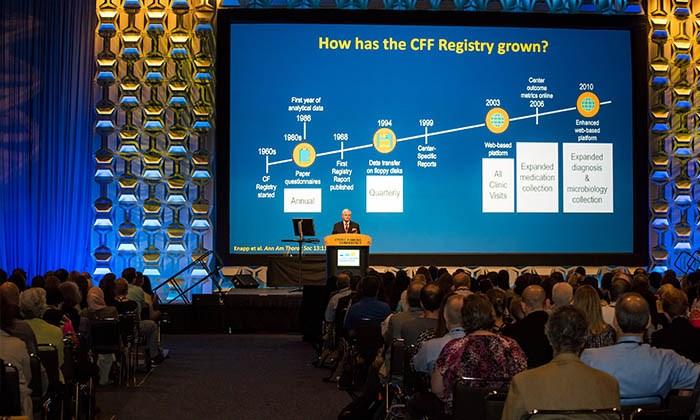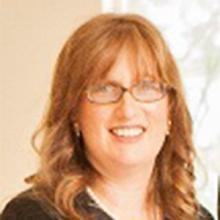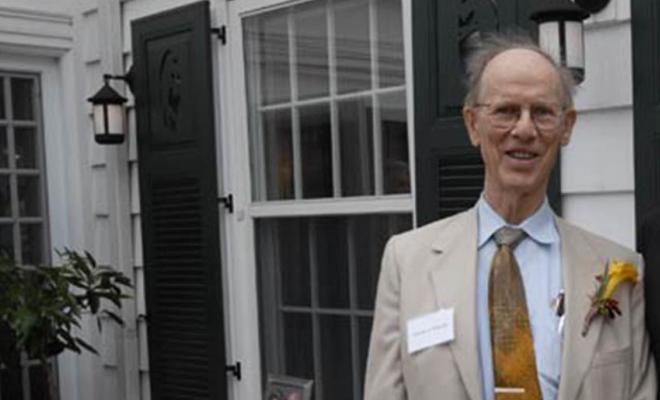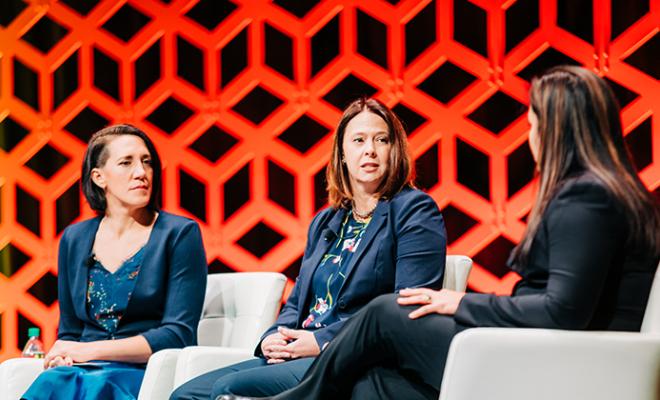Yogi Berra said, “You can observe a lot by just watching.” This inspired the title for the third plenary at the NACFC, “You Can Observe a Lot by Just Watching: Lessons from the CFF Patient Registry.” In it, Wayne Morgan, M.D., a pediatric pulmonologist at the University of Arizona in Tucson, reviewed the role of the Patient Registry in improving our understanding of cystic fibrosis, the care of patients with CF and opportunities to improve care.
Since the 1960s, the CF Patient Registry has collected information about people with CF who receive care at CF Foundation-accredited care centers and agree to participate in the Patient Registry. Over time, the Registry has collected a wide range of information about people with CF to show trends, including lung function, the types of microorganisms they have and the medications they have been prescribed. Some of the uses of the Registry are to study CF treatments and outcomes and to design CF clinical trials. Thanks to the Registry, we are able to watch what happens in CF care and apply that knowledge to continuously improve the quality of that care.
Wayne Morgan, M.D., presented what the Registry tells us about people with CF and how it informs improvements in CF care.
Dr. Morgan shared his unique perspective on how the Registry has helped shape our understanding of CF and clinical care. After recognizing the late Dr. Warren Warwick, who started the Registry, Dr. Morgan outlined how it has grown and reflected on three main questions:
- Where are we now? We know that people with CF are living longer and that fewer of them are being infected with Pseudomonas aeruginosa. We know this because we have decades of data in the Registry, which help us prepare for the future. When we saw that more people with CF were living into adulthood, we realized that we needed adult care programs and resources to support adults with CF as they began higher education, joined the workforce and started families.
- What have we learned about CF and its care? Touching on all aspects of CF, from genetics, survival, microbiology and nutrition to lung function decline, exacerbations and treatments, Dr. Morgan summarized the knowledge we have gained through analysis of Registry data, highlighting both areas of success and opportunities for improvement. One of his concerns, which has been supported by the Registry data, is that children with high lung function are not being treated aggressively enough when they experience a pulmonary exacerbation.
- How does the Registry support care teams? Looking at Registry data for each center has helped improve care. In 2012, Registry data showed that the average lung function for people who were treated at Virginia Commonwealth University's (VCU) pediatric program was below average compared with other CF care centers. VCU implemented a quality improvement program and by 2015, the average lung function among VCU patients was higher than the average for the 10 best programs in the country.
As an epidemiologist, I spend my days at the CF Foundation thinking about nuances and details of Registry data. It was so exciting to watch the plenary and reflect on the impact the Registry has had on our community. One thing that really struck me was how the Registry's continued success is such a group effort: this unparalleled resource exists only through the efforts of the entire community, people with CF and their families who agree to share their data, care team members, the people who enter data into the Registry, researchers and our team at the CF Foundation.
The realization that we need contributions from everyone involved, especially people with CF and their families, has led to a new initiative: the Insight CF Registry Research Project. For the first time, people with CF and their families can have a direct impact on shaping research efforts using the Registry, and the first step is to invite them to send us their research questions. To learn more and submit research questions, visit www.cff.org/InsightCF or email insightcf@cff.org.

